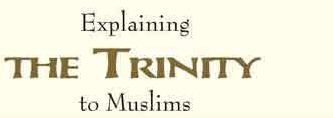
Allah: Part I
The word Allah has been used by Arabic people of different religions since pre-Islamic times. More specifically, it has been used as a term for god by Muslims. The word Allāh itself, is a variation of a word used by pre-Islamic Arabs throughout Arabia as part of the many gods worshipped, including the moon, by the various nomadic tribes. Most grammarians hold that the word, Allah, was borrowed from Syriac or Hebrew, and consider it to be derived from a contraction of the Arabic definite article al- “the” and ilāh “deity, god” to al-lāh meaning “the deity”, or “the god.”
Islam knows no creed, no formal profession of faith that every Muslim is required to proclaim as a sign of membership in the Islamic community. A number of Muslims have attempted to elaborate such an ʿaqīdah (creed) to supply the immediate doctrinal needs of some moment of Islamic history, but none has won the ecumencial support enjoyed by the simple and powerful shahādah(testimony), the first of the so-called Pillars of Islam, and the only one of the five that has to do with faith and belief. “I testify,” the Muslim says, “that there is no god but The God” (Ashhadu an lā ilāha illā Allāh), “and Muḥammad is His envoy.” The God of that testimony, in Arabic Allāh (a contraction of al-ilāh, the god), is the same God worshiped, to the exclusion of all others, by the Jews and the Christians, and the deity is described clearly and succinctly in the famous “Throne Verse” (surah 2:255) of the Qurʿān:
“God! There is no god but He, the Living, the Self-Subsistent. Slumber seizes Him not, no, nor sleep. To Him belong all that is in the heavens and upon the earth. Who is there who interecedes with Him except with His permission? He knows what has appeared as past and as yet to come, and there is no share in His knowledge except by His will. His throne extends over the heavens and the earth, and their preservation wearies Him not. He is the All-sublime, the All-glorious.”
The Pre-Islamic Allāh
The cult of a deity termed simply “the god” (al-ilāh) was known throughout southern Syria and northern Arabia in the days before Islam—Muḥammad’s father was named ʿAbd Allāh (Servant of Allāh)—and was obviously of central importance in Mecca, where the building called the Kaʿbah was indisputably his house. Indeed, the Muslim’s shahādah attests precisely that: the Quraysh, the paramount tribe of Mecca, were being called on by Muḥammad to repudiate the existence of all gods save this one. It seems equally certain that Allāh was not merely a god in Mecca but was widely regarded as the “high god,” the chief and head of the Meccan pantheon, whether this was the result, as has been argued, of a natural progression toward henotheism (belief in one god without denying the existence of others) or of the growing influence of Jews and Christians in the Arabian Peninsula. The most convincing piece of evidence that it was the latter at work is the fact that of all the gods of Mecca, Allāh alone was not represented by an idol.
How did the pagan Meccans view their god Allāh? The Qurʿān provides direct and primary evidence: “And if you ask them (i.e., the Quraysh) who created them, they will certainly reply, ‘Allāh’ ” (Qurʿān 43:87).
“Say: Who is it that sustains you from the sky and from the earth? Or who is it who has power over hearing and sight? And who is it who brings out the living from the dead and the dead from the living? And who is it who rules and regulates all affairs? They will soon answer, “Allāh” (Qurʿān 10:31).”
“If you ask them who created the heavens and the earth, they will certainly say “Allāh.” Say: Those [female] things you call upon apart from Allāh, do you think that if God wills evil to me, they can remove this evil, or, if He wills mercy to me, they can hold back this mercy? (Qurʿān 39:38).”
In this latter verse Allāh appears quite clearly as the “high god” of Mecca. On the one hand, there is Allāh, the creator, sustainer and ruler of the universe, and on the other, a host of minor deities—the “daughters of Allāh” among them—who intercede with the lord of the gods, and this is precisely the view that is attacked in the Qurʿān (10:18):
“They serve apart from Allāh that which what neither harms nor benefits them, and they say “These are our intercessors with Allāh.” Say: Are you informing God of something He knows not in the heavens or on earth? Glory be to Him! He is far above any partners.”
The Qurʿān is our most certain testimony to religious life in Mecca before the appearance of Islam, because, at least at the beginning of his career, Muḥammad’s concern was not, as it was later in Medina, with regulating the life of a community of believers but rather with reforming the beliefs and practices of his fellow Meccans. “Reforming” is a more appropriate term than “converting,” because the Qurʿān also reveals, as we have seen, that the worship of Allāh was well established there before Muḥammad. What was in question, then, was not simply belief in or worship of Allāh, which the Quraysh certainly practiced, but the Meccans’ “association” (shirk), as the Qurʿān calls it, of other deities with Allāh. The Meccans seemed to accept the existence of other gods in the “exalted assembly,” while denying that they had any autonomous power, though they could perhaps help men if God so willed (Qurʿān 34:22–23).
Some verses of the Qurʿān seem openly to concede the existence of such gods, alluding to the fact that they are Allāh’s creatures (25:3), and that they are Allāh’s servants, rather than his partners (7:191–195). Those deities falsely associated with Allāh will even appear at the Judgment Day to disavow the worship of their devotees (10:28–29). Finally, Allāh’s position with respect to the other gods is illuminated by one of the epithets applied to him, together with a self-gloss, in surah 112, itself a basic statement of Qurʿānic monotheism:
Say: He is Allāh: One;He is Allāh: the Eternal.He has neither begotten, nor was He begotten,And no one is equal to Him.
Allāh in Early Islam
Thus Allāh was neither unknown nor unimportant to the Quraysh when Muḥammad began preaching his worship at Mecca. What is equally certain is that Allāh had what the Qurʿān disdainfully calls “associates,” other gods and goddesses who shared both his cult and his shrine. The Qurʿān seems, at first glance, to assert that it was Muḥammad’s preaching that introduced a new monotheistic urgency into the Meccan cult: the Quraysh are relentlessly chastised for “partnering God,” and from what we otherwise know oof Muḥammad’s Mecca, the charge is not unjust. But a closer look reveals that the matter was by no means so simple. While still at Mecca, Muḥammad had begun to invoke the example of Abraham, as in this verse that establishes the continuity of the “religion of Abraham” through the line of the prophets to his own monotheism: “He has established for you the same religion that He enjoined on Noah—and which We revealed to you—and that He enjoined on Abraham, Moses, and Jesus—namely, that you remain steadfast in the religion and make no divisions in it” (Qurʿān 42:13).
Whatever his beliefs before his prophetic call, the Muḥammad who began to preach the “warning” and the “good news” of Islam in Mecca had a bold new understanding of God, which unfolds in the early surahs of the Qurʿān. Muḥammad’s God was no longer the Allāh of the pagan Quraysh, to be sure, but what is most remarkable, perhaps, is that in those same surahs Muḥammad almost invariably refers to the deity not as “Allāh” but as “Lord” (rabb) or since God is often the speaker, “your Lord.” It is patently not the name of some new divinitypreviously unknown at Mecca; rather, it is an appellative, a reference to a familiar. Who is Muḥammadʾs “Lord”? It is not at all clear at this point, although later it is unmistakably the Allāh of the Quraysh, and, of course, of the Jews and Christians.
Sometime after the beginning of his preaching, Muḥammad also began to use the name al-Raḥmān (The Merciful One) for his God, and conspicuously (in surahs 56, 68, 78, 89, and 93) “Lord” and “Raḥmān” are used together, with no mention of Allāh. Unlike “Lord,” Raḥmān appears to be a proper name, always used with the article and quite different from the other appellatives applied to God in the Qurʿān. The name al-Raḥmān appears more than fifty times in the surahs of the so-called “second Meccan period,” often with explicit reference to the fact that the Meccans found the name strange or the deity somehow unacceptable (21:36; 25:60; 13:30). Thus Muḥammad’s choice of the name al-Raḥmān to designate the “Lord” who was sending him revelations caused confusion and objections among the Quraysh. Some may have thought that Muḥammad’s Raḥmān and their own Allāh were two distinct gods, and we can see the beginnings of a reconciliation in 17:110 (“Pray to Allāh or pray to al-Raḥmān; whichever you call upon, to Him belongs the beautiful names”), but after that, there is no further use of “al-Raḥmān” as the unique name of God. Thenceforward that name was the familiar Allāh of Mecca, and Raḥmān became one of his characterizations, enshrined in the formula that stands at the head of 113 surahs of the Qurʿān: “In the name of Allāh, the Merciful, the Compassionate.”
Muḥammad apparently had a direct experience of God (53:1–18; 81:19–27), but the Muslims’ understanding of Allāh is based not on that personal experience, which the Prophet did not share with his followers, but on the Qurʿān’s public witness. Allāh is Unique, the Creator, Sovereign, and Judge of humankind. It is Allāh who directs the universe through his direct action on nature and who has guided human history through his prophets, Abraham, with whom he made his covenant, Moses, Jesus, and Muḥammad, through all of whom he founded his chosen communities, the “Peoples of the Book.” Indeed, his guidance descends even to the most particular actions: “He turns astray whom He wishes and guides whom He wishes” (e.g., 14:14; 16:93). From the Qurʿānic portrait, Muslim piety later extracted the scriptural ninety-nine “beautiful names of Allāh” (7:180; 17:110; 20:8), which became in turn the basis for prayer—particularly the repetitive Ṣūfī type known as dhikr (lit., remembrance)—and for theosophical speculation on which of the ninety-nine was the “true” name of Allāh that might reveal the divine essence.
The Qurʿān provided the revealed foundation on which later Muslims built their own expanded understanding of God, and in two different directions. Under the clear influence of Greek and Christian prototypes, there came into existence in the ninth century the Muslims’ own version of sacred theology, which they called kalām (dialectical discourse), and it was one of the objectives of this science to investigate the nature, attributes, and actions of God. The traditionists, who wanted to affirm all the scriptural predicates of Allāh, held for the reality of God’s attributes (knowledge, power, speech, etc.), while the early theologians saw this as compromising tawḥīd (the divine unity) and reduced the Qurʿānic attributes to nominal or created status. Thus God’s speech (the Qurʿān) was for the rational theologians something created, while for the traditionists it was uncreated and eternal, no matter what the theological consequences, and it was their view that eventually prevailed.
One attribute, God’s power, led to another debate, that on divine omnipotence vs. human free-will. The Qurʿān asserts the former on many occasions (“It is God who has created you and all that you have done” [37:96]) but at the same time insists on human responsibility for moral acts (“Every good which comes to you comes from God; every evil which comes to you comes from yourself” [4:79]). Neither side ceded, and the issue remained a non liquet, though with an inclination to assert the appearance of human liberty: the human agent “acquires” the sense of responsibility. There followed from this another dispute, with perhaps more profound consequences, on the efficacy of all secondary causality, with philosophers asserting the existence of natural causes and traditionists arguing against them for both a moral and a physical universe under the immediate control of, if not actually determined by, God alone.
The Ṣ ūf ī View of Allāh
The mystics too got caught up in speculation about God, though more often following an experience of the divine than in stating the term of a logical proposition. Many Ṣūfīs claimed to have experienced oneness with Allāh—one, the notorious al-Ḥallāj (d. 922), was executed for the boldness of his claim—which they described in a variety of metaphors and attempted to explain by a number of technical terms (“vision,” “infusion,” “identity”). And some Ṣūfīs, notably Ibn al-ʿArabī (d. 1240) and his school, announced, on the basis of this experimental insight, a kind of existential monism under the rubric “the oneness of being”—God’s, that is, and that of the universe. These Ṣūfī insights into the nature of God often stood in explicit opposition to the traditionalist theologians’ more reasoned discourse and even the simple piety of the ordinary believer. According to Abū Ḥāmid al-Ghazālī (d. 1111), the great medieval standard-bearer of Islamic orthodoxy, it was the Ṣūfīs’ approach to God that finally brought a healing certitude to his doubting heart, but others were abashed and scandalized by the freedom—almost the licentiousness—of the mystics’ language in describing that totally transcendent Other.
Sufism’s legacy remains deeply embedded in Muslim spirituality. Although Muslims no longer argue the question of the relationship between Allāh’s essence and his attributes, and the profound debate between his omnipotence and man’s creative freedom to act has been stilled for many centuries, the devotion to the “beautiful> names of God” still has an important place in Islam, and the Muslims’ primary virtue is tawakkul (total trust in God). And despite the energetic and devoted attempts of Muslim theologians, theosophists, lawyers, and mystics to enlarge, enhance, or simply explain, the Muslimʾs portrait of that God besides which there is no other is still the Qurʿān’s, drawn in its opening verses: “Praise be to Allāh, the Lord of the Worlds, the Merciful, the Compassionate, the Sovereign of the Day of Judgment. Truly, it is You we worship and You whose aid we seek” (1:1–5).
Allah: Part I
652 – 002
https://discerning-Islam.org
Last Updated: 06/2021
Copyright © 2017-2021 Institute for the Study of Islam (ISI) | Institute-for-the-study-of-Islam-org | Discerning Islam | Discerning-Islam.org | Commentaries on Islam | © 2020 Tips Of The Iceberg | © 1978 marketplace-values.org | Values In The Marketplace | are considered “Trade Marks and Trade Names” ®️ by the Colorado Secretary of State and the Oklahoma Secretary of State. All Rights Reserved.



